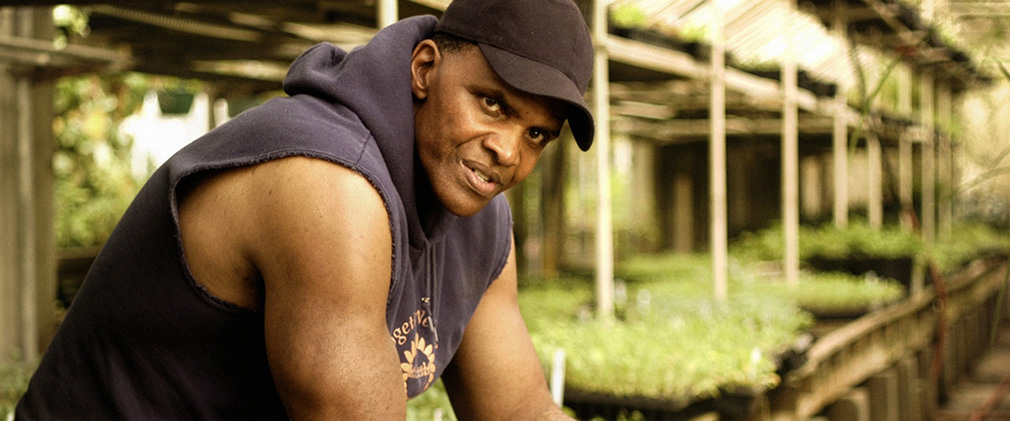Will Allen: Gentleman farmer, grand thinker
Will Allen is proof that the phrase “down to earth” can be as literal as it is figurative. His ongoing relationship to soil and compost, and all the processes that produce them, keep him literally grounded.
The founder and CEO of the Milwaukee-based community food center known as Growing Power spoke to an audience of about 300 recently at the Johns Hopkins Bloomberg School of Public Health. While he’s very much at home in front of a crowd, you could get the impression he was missing his worms back home. In his slide show or on the Internet, you can find pictures of Allen with hundreds of worms in his giant hands (definitely Google-worthy). He gives much of the credit for his food production successes to those humble creatures.
“If you drop me off anywhere in the world with a handful of worms, I can build you as big a food production system as you want,” he has said.
That may sound like hubris, but really he’s just filled with confidence because back home there are 7,000 pounds of worms that have his back (he started out with just 30 pounds). And while Allen is down-to-earth, he is also an expansive thinker and an expansive doer.
In Milwaukee, Allen’s nonprofit grows enough food to feed 12,000 people each year. But his ideas have gotten so big that Milwaukee can’t contain them anymore. So, this urban farming pioneer has also become a global ambassador. He has taken his piece of the good food movement on the road, to both urban and rural sites all over the U.S., and to places like Kenya, Uganda, South Africa, the UK and Ukraine.
But Allen is not just growing food, he is helping to grow community—that feeling of being connected to each other, as well as to the natural world that sustains us. Community is the very ingredient that is most painfully lacking in the industrialized food system that is at once so productive and so destructive.
Allen and Fast Food Nation author Eric Schlosser recently co-authored an afterword to the Prince Charles book On the Future of Food. In it, they describe an emerging food system that “will be much more diverse, resilient, and democratic. It will take the long view.”
Allen can make us believe that such a system is possible because he is helping to create a prototype of it in his corner of the world, and helping others do the same where they’re at. The story of his personal journey and its expansive impacts will be told in his upcoming book, entitled The Good Food Revolution: Growing Healthy Food, People, and Communities, to be released May 10. Mark your calendars.
Even with all of his far-flung successes, Allen has said that he is first and foremost a farmer. Perhaps, though, the soil is the place where this down-to-earth gentleman farmer and the grand thinker within him can merge. As Allen has said: “I do like nothing better than to get my hands into good, rich soil and sow the seeds of hope.”
